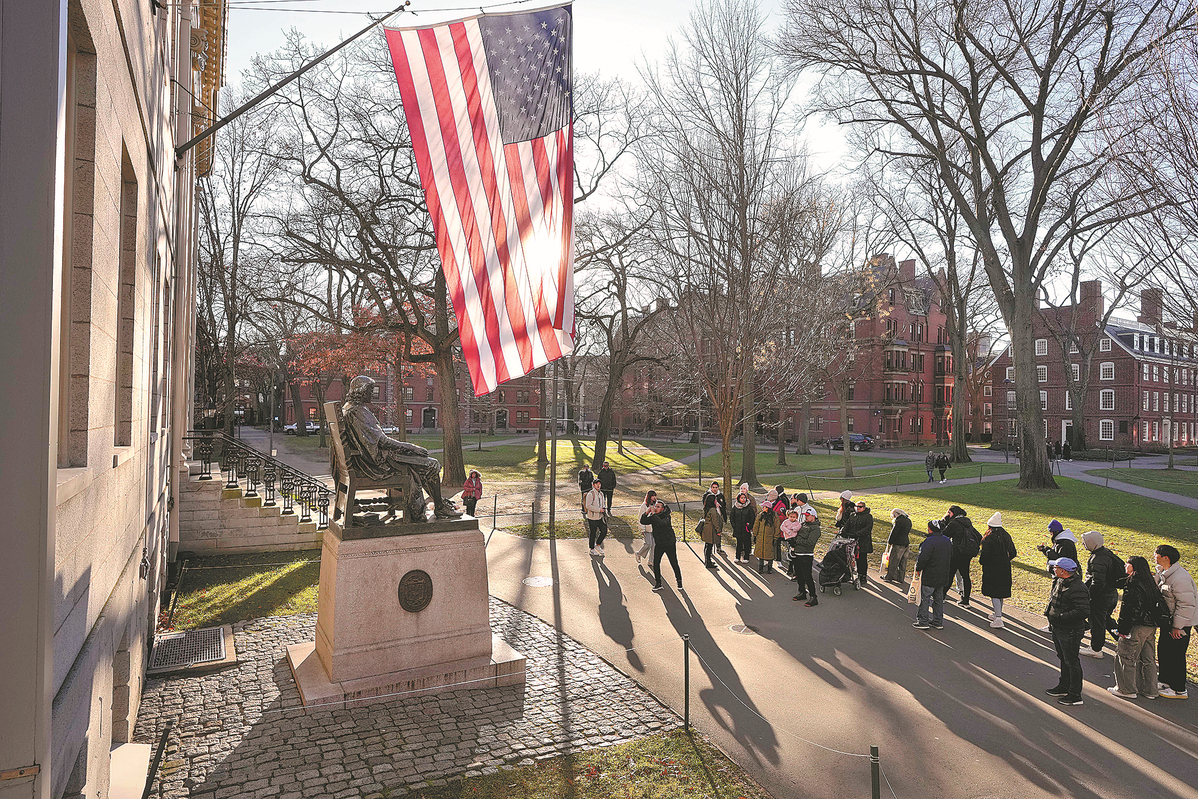Time for the US to change college admissions?


Long ago, while working as a Judicial Intern in the Office of the Chief Justice of the US Supreme Court, I vividly remember standing at the back of the chambers when Justice Powell announced the Court's decision in the Regents of the University of California v. Bakke admissions case (438 US 265) in 1978. That case opened the door to race diversity being used as a factor in US college admissions.
Figuring heavily into that decision was Harvard University's use of an applicant's racial background—along with other factors—to admit a diverse entering class. Harvard's rationale for this was that students in a highly diverse entering class would end up teaching each other about how the world works. It turns out I was working as an Assistant Director of Admissions for Harvard Business School—the first Asian officer at Harvard University—at the time this rationale was announced by Harvard College.
But now all that has changed.
This year, President Donald Trump has ended a practice used for many years to admit a racially diverse entering class and admit more African American and Latinx students into US colleges and universities. Issued on January 23, 2025, Trump's Executive Order #13583 has since caused frustration, uncertainty and confusion among university administrators who had long been using DEI (Diversity, Equity and Inclusion) as a core admissions tool to admit a racially diverse entering class.
While the 1954 Supreme Court case of Brown v. Board of Education (347 US 483) is considered by many to have been the foundational case providing the impetus for the civil rights movement, it also provided a lesser-known opening. Drawing from legal research conducted by the lawyer for the appellant, Thurgood Marshall, Chief Justice Earl Warren relied upon a little-known precedent from a case way back in 1938 that would change the world.
US v. Carolene Products (304 US 144) reported that small local milk farms could not compete with the very large milk combines which had been fixing prices to squeeze out the small milk producers. There, in footnote 4 to Carolene Products, words were written in a perfunctory manner to limit the scope of the 1938 ruling, stating that these words offered applied only to "a discrete and insular minority".
This wording was earth-shattering because it later served as the precedent for African American attorney Thurgood Marshall to argue before the US Supreme Court that a small number of black girls barred from attending an all-white school in Topeka, Kansas, were "a discrete and insular minority" and as a result, denied an equal opportunity to education provided under the Constitution.
Marshall's rationale was found compelling and Chief Justice Earl Warren—who had earlier rounded up Japanese American citizens in the aftermath of Pearl Harbor when governor of California—now ruled in favor of Marshall's argument that black girls in Topeka, Kansas, were being discriminated against by the Board of Education.
This precedent could be also interestingly traced back to a 1938 footnote borrowed by Thurgood Marshall in a nondescript case decided 26 years later.
So today, with President Trump's executive order barring the use of DEI as a strategy to reverse the ills of unequal college admissions has forced progressive thinkers to move in a completely new direction. With these thinkers no longer able to rely upon a rationale that "harm" from racial disadvantage was causing discrimination, it is my belief that they should attack the operation of "white privilege" itself—since that is what is being used today to give preference to white males applying to college.
The literature is replete with articles explaining how white privilege operates and how widespread it is, going back to the work of Peggy McIntosh (1989). Similarly, one can trace scholarship addressing white, male and class-based discrimination all the way back to Audre Lorde (1979) who wrote, "The Master's tools will never dismantle the Master's house."
So today, the rest of the world is watching to see if US colleges will redesign their admissions formula so they can continue to admit racially diverse entering classes. Failing that, foreign nations and pundits will wonder if the US is finally going against its founding principle of equal justice under law.
Formerly a law school dean and bank president, Gregory K. Tanaka is the author of "Systemic Collapse and Renewal: How Race and Capital Came to Destroy Meaning and Civility in America and Foreshadow the Coming Economic Depression" (Peter Lang Publishing). The views don't necessarily reflect those of China Daily.
If you have a specific expertise, or would like to share your thought about our stories, then send us your writings at opinion@chinadaily.com.cn, and comment@chinadaily.com.cn.


































